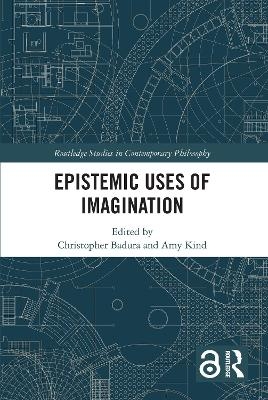
Epistemic Uses of Imagination
Routledge (Verlag)
978-0-367-48056-1 (ISBN)
This book explores a topic that has recently become the subject of increased philosophical interest: how can imagination be put to epistemic use? Though imagination has long been invoked in contexts of modal knowledge, in recent years philosophers have begun to explore its capacity to play an epistemic role in a variety of other contexts as well.
In this collection, the contributors address an assortment of issues relating to epistemic uses of imagination, and in particular, they take up the ways in which our imaginings must be constrained so as to justify beliefs and give rise to knowledge. These constraints are explored across several different contexts in which imagination is appealed to for justification, namely reasoning, modality and modal knowledge, thought experiments, and knowledge of self and others. Taken as a whole, the contributions in this volume break new ground in explicating when and how imagination can be epistemically useful.
Epistemic Uses of Imagination will be of interest to scholars and advanced students who are working on imagination, as well as those working more broadly in epistemology, aesthetics, and philosophy of mind.
Chapters 6 and 12 of this book are freely available as downloadable Open Access PDFs at http://www.taylorfrancis.com under a Creative Commons Attribution-Non Commercial-No Derivatives (CC-BY-NC-ND) 4.0 license.
Christopher Badura is a PhD student in philosophy at the Ruhr University Bochum, Germany, working on logics of imagination. His research interest is philosophical logic and its application to philosophical issues concerning imagination. Amy Kind is Russell K. Pitzer Professor of Philosophy at Claremont McKenna College, where she also serves as Director of the Gould Center for Humanistic Studies. In addition to authoring the introductory textbooks Persons and Personal Identity and Philosophy of Mind: The Basics, she has edited Philosophy of Mind in the 20th and 21th Centuries, The Routledge Handbook of Philosophy of Imagination, and (with Peter Kung) Knowledge Through Imagination.
Introduction
Section I: Modality and Modal Knowledge
1. Why We Need Something Like Imagery
Peter Kung
2. An Imaginative Person’s Guide to Objective Modality
Derek Lam
3. Crossing Rivers: Imagination and Real Possibilities
Rebecca Hanrahan
4. Imagination, Metaphysical Modality, and Modal Psychology
Michael Omoge
Section II: Reasoning
5. Reasoning with Imagination
Joshua Myers
6. Equivalence in Imagination
Franz Berto
7. How Imagination Can Justify
Christopher Badura
8. Imagination, Inference, and Apriority
Antonella Mallozzi
Section III: Thought Experiments
9. Narratives and Thought Experiments: Restoring the Role of Imagination
Margherita Arcangeli
10. Two Ways of Imagining Galileo’s Experiment
Margot Strohminger
11. Attention to Details: Imagination, Attention, and Epistemic Significance
Eric Peterson
Section IV: Understanding Self and Others
12. Bridging the Divide: Imagining Across Experiential Perspectives
Amy Kind
13. On Imagining Being Someone Else
Julia Langkau
14. "Imagine If They Did That to You!": The Complexity of Empathy
Luke Roelofs
15. Imagination, Selves, and Knowledge of Self: Pessoa’s Dreams in The Book of Disquiet
Nick Wiltsher and Bence Nanay
| Erscheinungsdatum | 15.06.2021 |
|---|---|
| Reihe/Serie | Routledge Studies in Contemporary Philosophy |
| Verlagsort | London |
| Sprache | englisch |
| Maße | 152 x 229 mm |
| Gewicht | 585 g |
| Themenwelt | Geisteswissenschaften ► Philosophie ► Erkenntnistheorie / Wissenschaftstheorie |
| Geisteswissenschaften ► Philosophie ► Metaphysik / Ontologie | |
| ISBN-10 | 0-367-48056-5 / 0367480565 |
| ISBN-13 | 978-0-367-48056-1 / 9780367480561 |
| Zustand | Neuware |
| Haben Sie eine Frage zum Produkt? |
aus dem Bereich


![Was heißt Denken?. Vorlesung Wintersemester 1951/52. [Was bedeutet das alles?] - Martin Heidegger](/media/113619842)